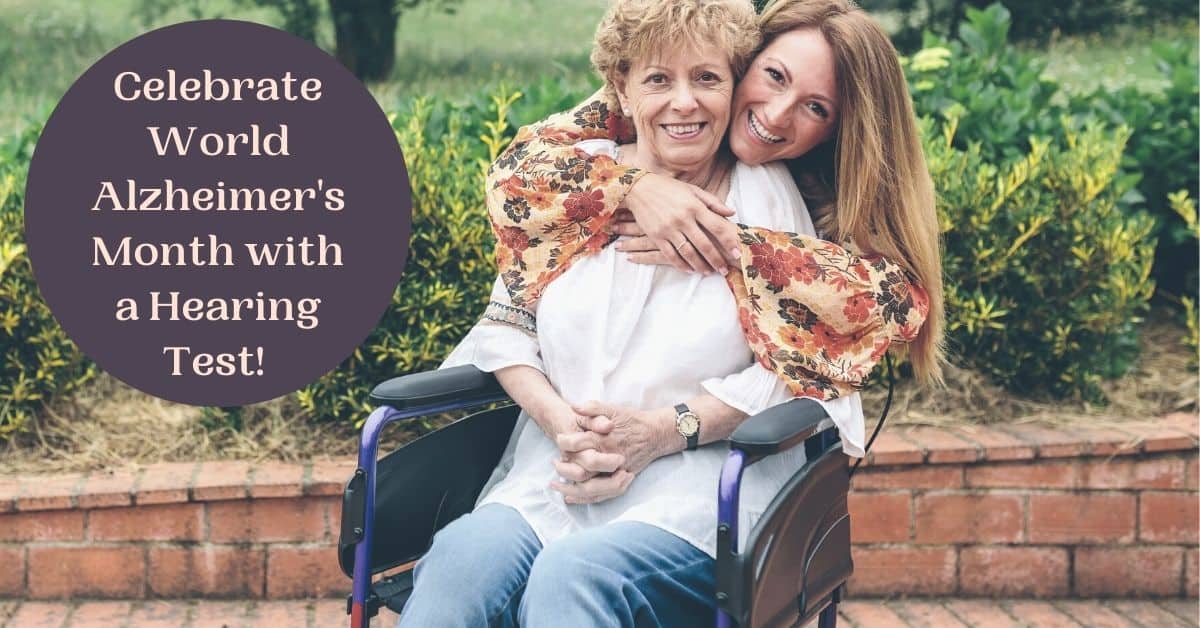- How to Recognize the First Signs of Hearing Loss - June 5, 2025
- Understanding the Connection Between Tinnitus and Weather - May 17, 2025
- The Most Unexpected Reasons Hearing Aids Can Malfunction - May 9, 2025
Did you know that 50 million people around the world have dementia or Alzheimer’s disease? This disease affects the brain, and causes memory loss and difficulty functioning. September is World Alzheimer’s Month, so it’s the perfect time to learn all about Alzheimer’s disease. Alzheimer’s Disease International provides information and education about Alzheimer’s disease and dementia and works tirelessly to increase awareness about Alzheimer’s disease.
Learn More About Alzheimer’s Disease and Dementia
Alzheimer’s disease is the most common kind of dementia. In fact, these terms are often used interchangeably because their symptoms and outcomes are so similar. Dementia is a brain disease that slowly changes your brain. The degenerative disease leads to the growth of plaques and tangles in the brain. These cell structures disrupt the normal neural networks in the brain. As these networks are interrupted, the neural pathways you use every day may be damaged or even die.
The First Signs of Alzheimer’s Disease
If you think you or a family member may have dementia or Alzheimer’s disease, there are a few early signs you can watch for. Alzheimer’s disease leads to slower cognitive function, and you may notice that it’s harder to complete tasks, remember details, and even find the words you’re trying to say.
The first signs of Alzheimer’s disease can include:
- Memory loss, like forgetting where you left your bag, or forgetting about an appointment.
- Having trouble with daily tasks, like brushing your teeth or balancing the checkbook.
- Difficulty communicating, including having a hard time understanding what’s being said, and finding the right words to express yourself.
- Feeling disoriented, such as not remembering the date, or even forgetting where you are.
- Having a hard time during social interactions, and feeling very anxious and nervous in groups.
- Changes in personality, temperament, and mood.
Do these symptoms sound familiar? If you or a loved one has noticed any of these signs, you may have Alzheimer’s disease or dementia. These is currently no cure for dementia, but there are some things you can do to manage your symptoms and slow its progression.
How Hearing Loss and Alzheimer’s Disease are Linke
There’s a close connection between hearing loss and dementia. Both hearing loss and dementia affect the brain, leading to cell damage in the brain. Living with untreated hearing loss is also closely tied to rapid declines in cognitive function. This makes it easier for the plaques and tangles of Alzheimer’s disease to take over more areas of your brain. Researchers such as Frank Lin have confirmed that people living with hearing loss are far more likely to develop dementia. One study proved that even having mild hearing loss makes you twice as likely to develop dementia or Alzheimer’s disease!
Hearing loss makes it hard for your brain to stay active and healthy. You’re more likely to avoid social events when you can’t hear. You may stop going for your walk in the park, or even stop watching TV. When you have hearing loss your brain isn’t getting enough mental exercise to stay healthy. That’s why you experience cognitive decline and have a higher risk of developing Alzheimer’s disease.
Celebrate World Alzheimer’s Month with a Hearing Test!
Are you ready to do the right thing for your health? Pick up the phone and schedule a hearing test! Taking a hearing test is the first step in looking after your brain and improving your overall health and wellbeing. Hearing tests are easy and completely non-invasive. All you have to do is listen to a series of tones and let us know when you hear a sound. This will show us what sounds you’re hearing and what sounds you’re missing.
If you have hearing loss, the best thing you can do for your ears and brain is to treat your hearing loss with a pair of hearing aids. We have a huge selection of hearing aids to suit every hearing need and lifestyle. We offer Behind-the-Ear, In-the-Ear, and In-the-Canal hearing aids so you’ll easily find the style that works for you. You’ll also be able to choose from a number of great programs and features such as speech enhancement, background noise reduction, connectivity settings, and even tinnitus therapy. Find your perfect hearing aids and join us for World Alzheimer’s Month.

